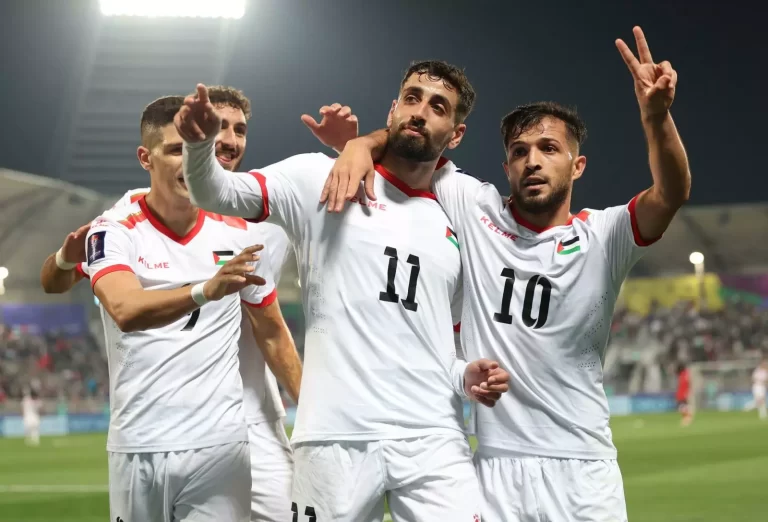A couple of weeks ago we asked friend of the blog Paul Hewitt to give us an idea of the atmosphere in the Thailand camp ahead of this weekend’s 1st leg World Cup Qualifier. He duly responded with this excellent piece. So instead of a “Scouting the Opponent” segment we present to you Paul’s take on the upcoming matches:
Thailand take on Palestine on Saturday at a new stadium and with a new head coach at the helm, but will anything change on the pitch? The signs weren’t good last week when the Elephants scraped a 1-0 win over lowly Myanmar; one day later a second-string side drew 1-1 against the same opposition. As usual, finishing was one of the major problems but the whole performance in the first game was hardly convincing. Coach Winnie Schaefer seemed far from impressed with what he saw in what was his first game in charge. The hugely experienced and successful German has only been in the job for about a month but already finds himself in a do or die situation. Football Association of Thailand president Worawi Makudi has rather short-sightedly demanded that making it through to the final group stage of qualifying is the minimum requirement for the new coach. So if the controversial chief is taken at his word then Schaefer could be looking for another job before the month is out!
Crucially for Palestine, and worryingly for Thailand, the latter hasn’t played a competitive match since the end of December; official FIFA Matchdays have come and gone without friendlies being organized, and the feeling of negativity amongst fans of the national side is almost palpable. Ask any fan about the current state of the national team and the words “crisis” and “going backwards” are likely to be heard; newspaper headlines scream the same after every match which doesn’t result in a win for Thailand, and the usual examples of recent “failure” are trotted out. Specifically, failing to get beyond the group stage at the 2009 SEA Games; being held to a 0-0 draw by the Maldives at the 2010 Asian Games, and exiting the AFF Cup also at the group stage at the end of the year.
But let’s look at those” failures” in a bit more detail. The SEA Games, a mini-Olympics for ASEAN countries, is a parochial little competition but highly regarded in the region. The football part of the games is an U23 affair and in the most recent addition in 2009, Thailand went out at the group stage after conceding two goals in the final few minutes against Malaysia to lose 2-1. That Thailand dominated the match and the fact that Malaysia went on to win the tournament were quickly forgotten as the media vented their collective spleen.
Mass amnesia also takes over where the 2010 Asian Games are concerned. The 0-0 group stage draw with the Maldivian minnows is dwelled upon; less talked about is the fact that Thailand made it out of the group, got through the last 16 by beating Turkmenistan in extra time before getting knocked out in the quarter-finals 1-0 by Japan. Again, Thailand was the better side for most of the match against the side that would go on to win the competition.
The AFF Suzuki Cup exit in December brought problems to a head in the national set up. The competition is contested by the eight best teams in Southeast Asia, and Thailand has been the traditional powerhouse over the years. It’s ASEAN’s Copa America or European Championships and is regarded as the most important competition on the calendar. After another disappointing group stage draw – this time 2-2 against Laos – Thailand went into their final group match against Indonesia needing a victory to be sure of progessing. At the Gelora Bung Karno Stadium in Jakarta – one of the most intimidating away trips in world football – Thailand dominated the match and deservedly took the lead halfway through the second half to stun the 70,000 Indonesians in attendance. But in the final ten minutes the same player, defender Panupong Wonsa, conceded two penalties both of which were successfully converted by Indonesia to win the game and send Thailand crashing out.
Coach Bryan Robson didn’t seem to have a future as coach after that, and after months of inactivity in the national team set up he eventually resigned in early June.
The appointment of Schaefer was generally welcomed by fans and media alike and the Thai Premier League mid-season break was extended to cover the whole of July in order to allow the new coach maximum time getting to know his new charges. All has not gone to plan for Schaefer though. One of his players, Anucha Kitipongsri, went AWOL from the training camp and later claimed that he had an injury and wouldn’t be able to play. In addition to him, first-teamers Sarayoot Chaikamdee, Suree Sukha, Ekaphan Intasen and Teerathep Winothai are all ruled out with injuries. Furthermore, two German assistants that Schaefer brought with him, Norbert Hauenstein and Frank Brasas, have already had to return to Germany; the first for private reasons and the latter because of a breakdown in contract negotiations.

-and-WorawiMakudi110701R300.jpg)


